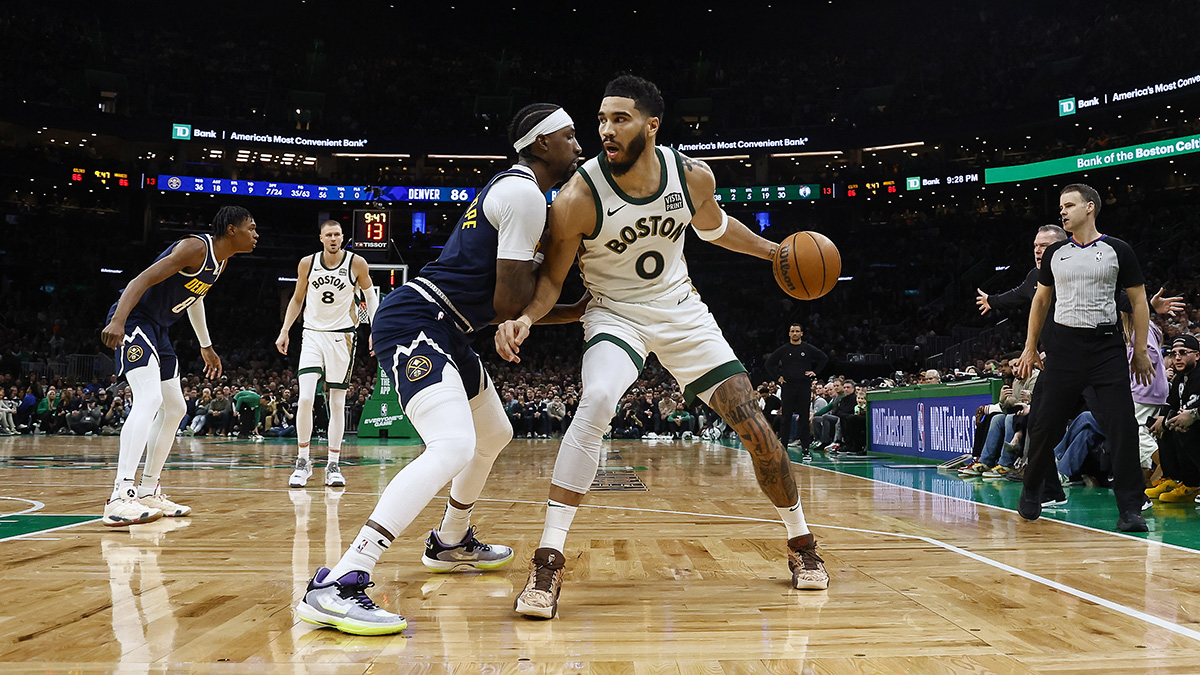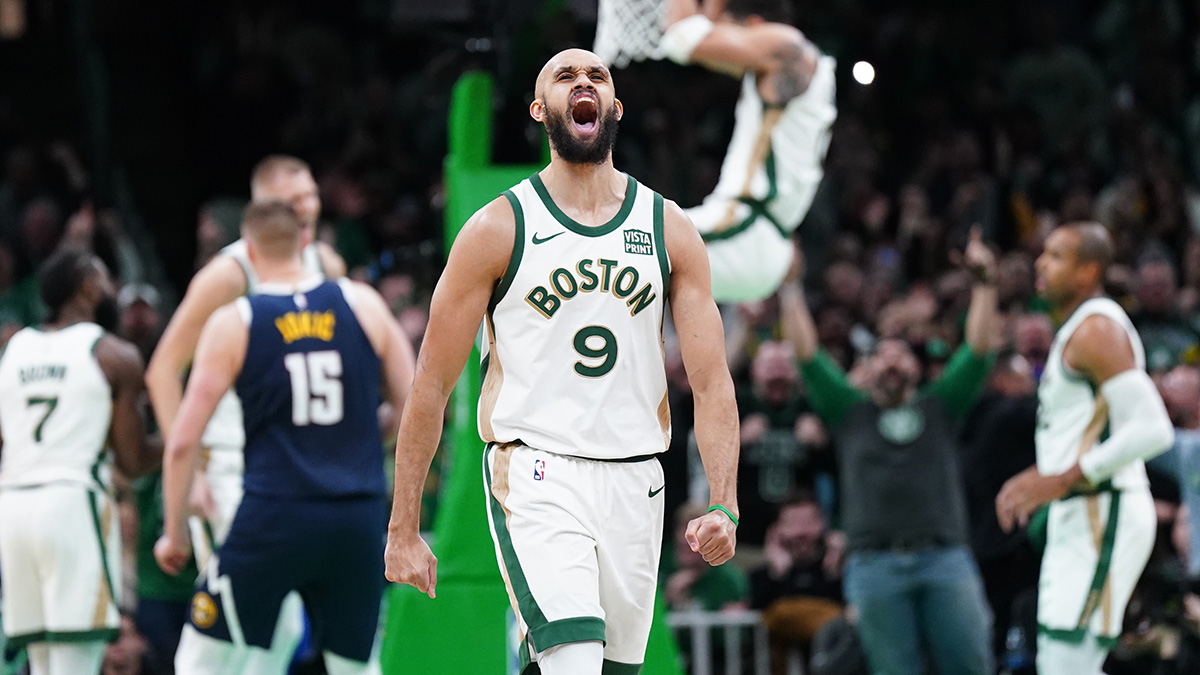
By A. Sherrod Blakely
CSNNE.com Celtics Insider
Follow @sherrodbcsn
The NBA players union has publicly said all the right things during the lockout, about the need to stick together, about their willingness to miss games to ensure that they get the best deal possible for themselves and future generations of NBA players.
It sounds great; even noble.
But up until now, it has been just talk.
The idea of missing games and the checks that come with those games, is one thing.
But to actually do it is easier - much easier - said than done.
Having players like Kevin Garnett or Paul Pierce or Dwyane Wade champion their cause by talking about holding out for the best deal - however long that is - certainly resonates with the rank-and-file union members.
But the NBA's elite players can go decades without making another dime, and still live like kings.
Boston Celtics
Their economic status doesn't speak for the majority of the league's players.
Dwyane Wade not getting paid isn't the same as say, Delonte West (he recently took a job with a furniture company).
And the owners are banking on the belief that that difference will ultimately create some division among the players and thus make them more susceptible to a more owner-friendly deal.
Divide and conquer, an old but highly successful tactic.
The union has been prepping its members for years in anticipation of this moment, well aware that there would be some struggles along the way in reaching a new CBA.
"At the end of the day, this is about business," Mo Evans, vice president of the players union, told CSNNE.com recently. "We understand this, and so do the owners. Both sides want the same thing, the best deal they can get."
Yes it is business.
But the NBA and most professional sports franchises in general, are different.
In most businesses, there's a clear distinction between your labor force and the product being manufactured.
The labor helps develop the product, which, if it's really good product, will be gobbled up by consumers.
But the NBA, like most professional sports teams, doesn't function within the framework of your typical business model.
NBA players aren't just the labor - they're the product, too.
"We believe that we're the most significant and important asset to this particular business," union president Derek Fisher told reporters on Tuesday. "And with the level of revenue that will continue to be generated as this business grows, that there's just a fair place that the compensation should start for this particular group."
Players got a 57 percent cut of the league's basketball-related income in the old CBA, a figure they fully expect to be lowered in a new deal. They have shown a willingness to go down to 53 percent or possibly 52 if certain additional concessions are made by the owners.
Owners countered with giving the players 46 percent of the BRI, but have shown that they are willing to increase their offer to a 50-50 split.
Being mere percentage points apart - each percentage point is worth about 40 million - gives some hope that this particular part of the CBA will be agreed upon soon.
But the NBA owners seem determined to make the new CBA, one that comes as close to guaranteeing them profits as possible.
With most NBA owners having businesses outside of basketball as their primary source of revenue, having a team in the red financially wasn't that big a deal because they could write it off.
But when those primary revenue streams began to dry up, they looked at ways to make those companies more profitable such as downsizing or modifying the pay scale.
To some extent, they're looking to do the same in this new CBA, which is why they were pushing so hard early on for a hard salary cap along with other system-related changes.
Eventually, the owners backed off of the hard salary cap demand.
But the threat of canceling the first two weeks of the regular season by Monday isn't just tough talk rhetoric on their part.
Only a last-minute change of heart by the players union to accept a 50-50 split, could save the season from having the first two weeks wiped out.
The players union rejected the 50-50 proposal on Tuesday, and when told that agreeing to that was the only way the NBA was coming back to the table to talk, several reports indicated that the union turned it down again.
So far, the players union has backed up its claims that they're on one accord and will stay strong, together, throughout this process.
But then again, nobody has missed a paycheck . . . yet.
A. Sherrod Blakely can be reached at sblakely@comcastsportsnet.com. Follow Sherrod on Twitter at http:twitter.comsherrodbcsn


